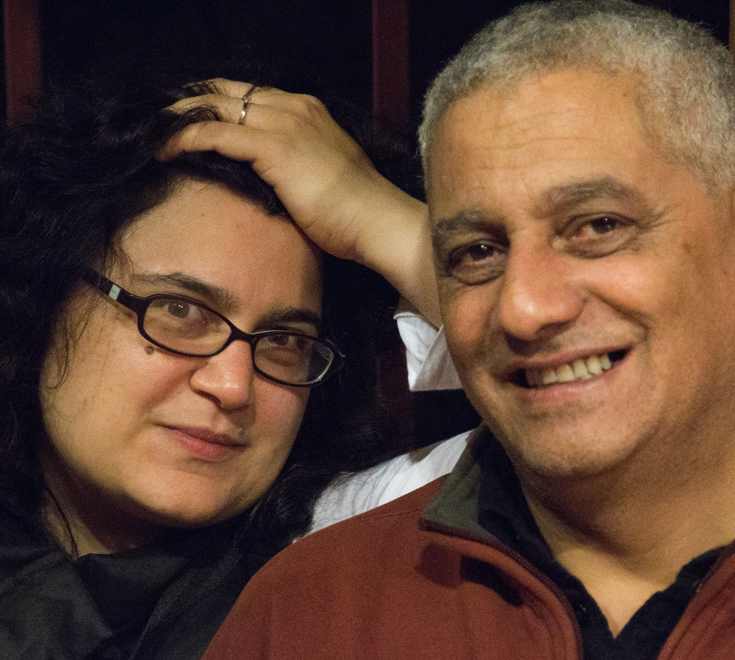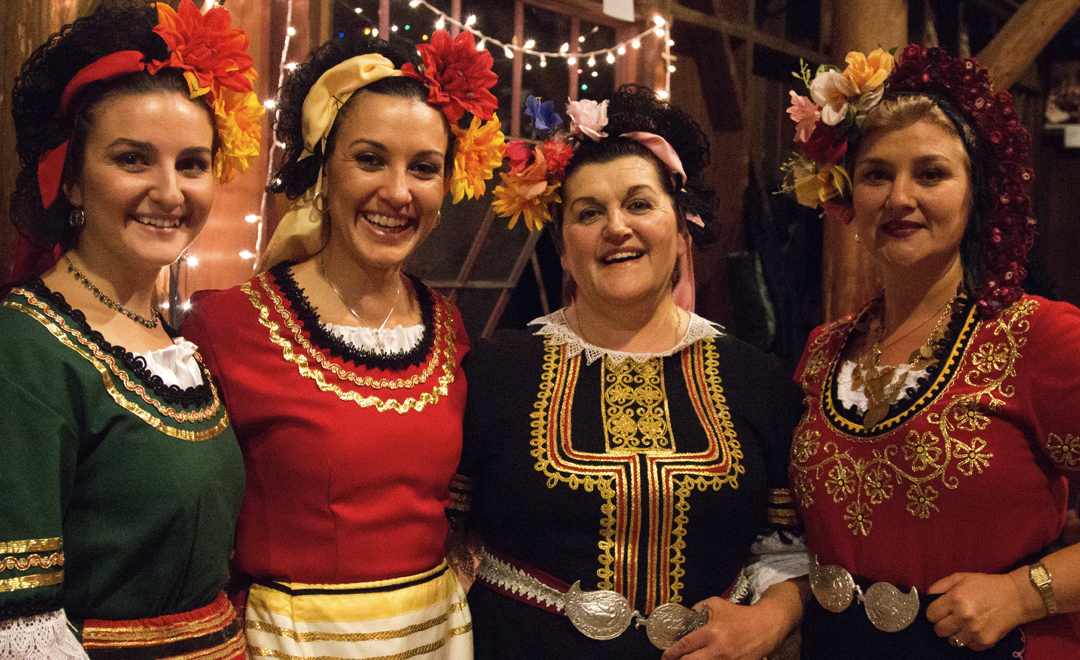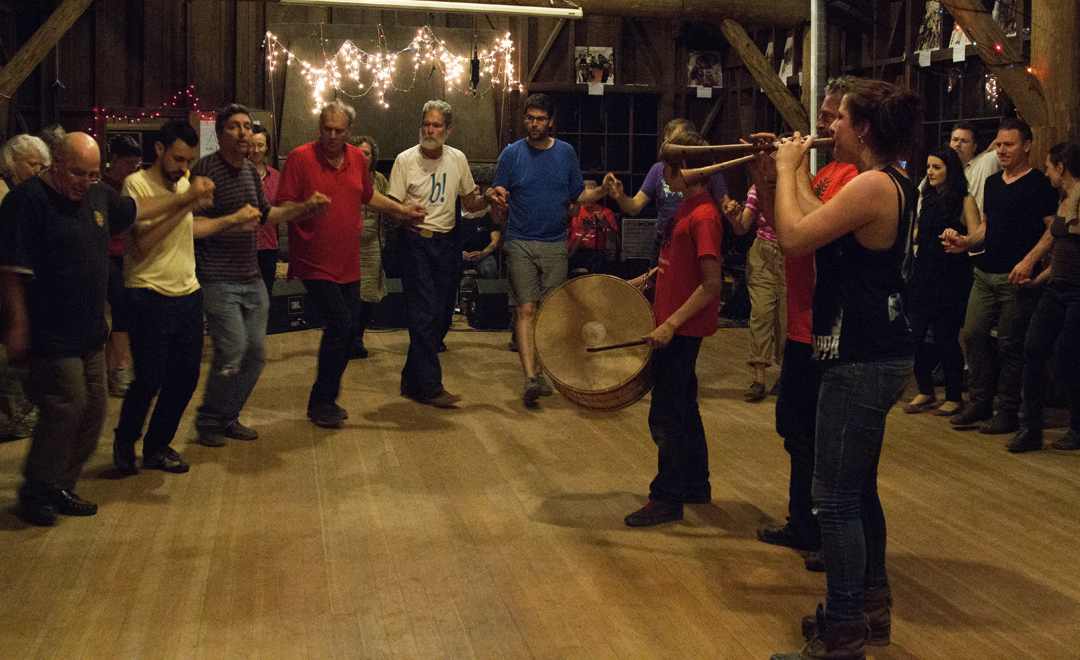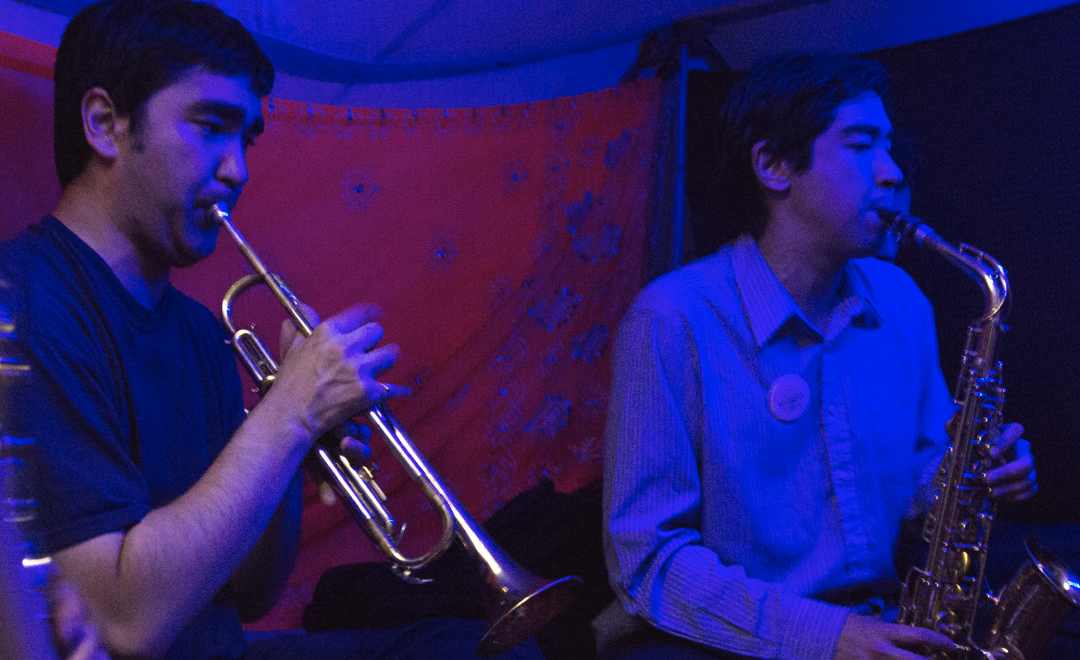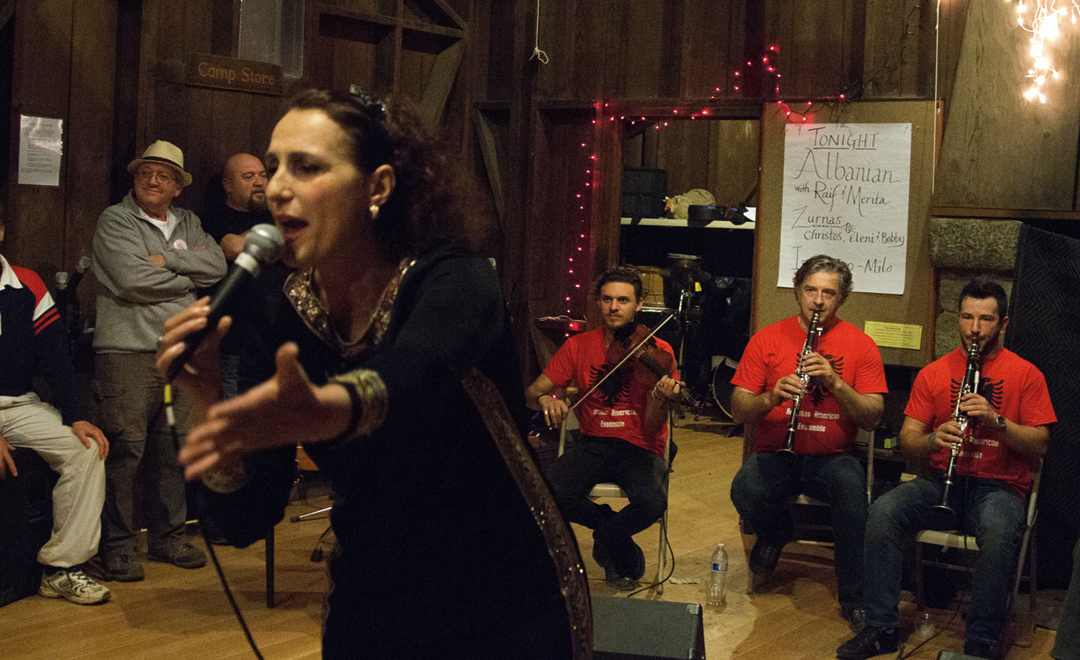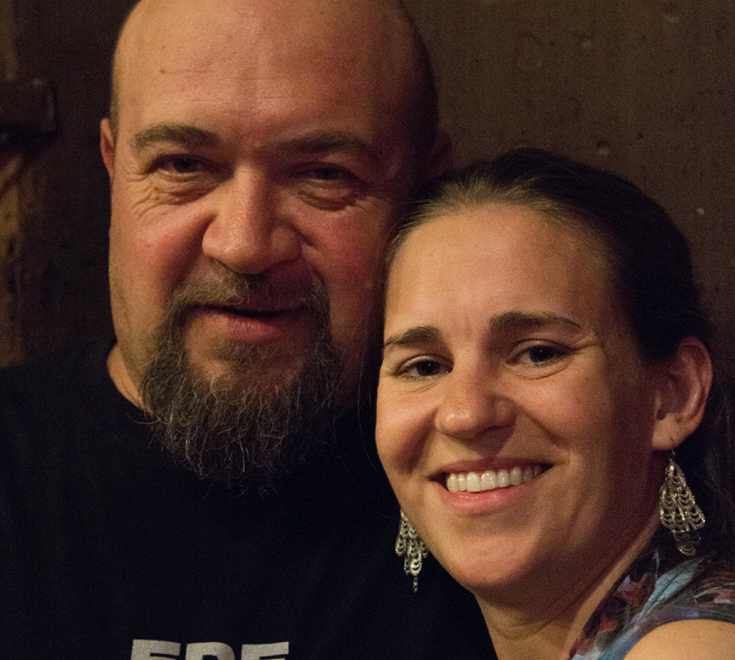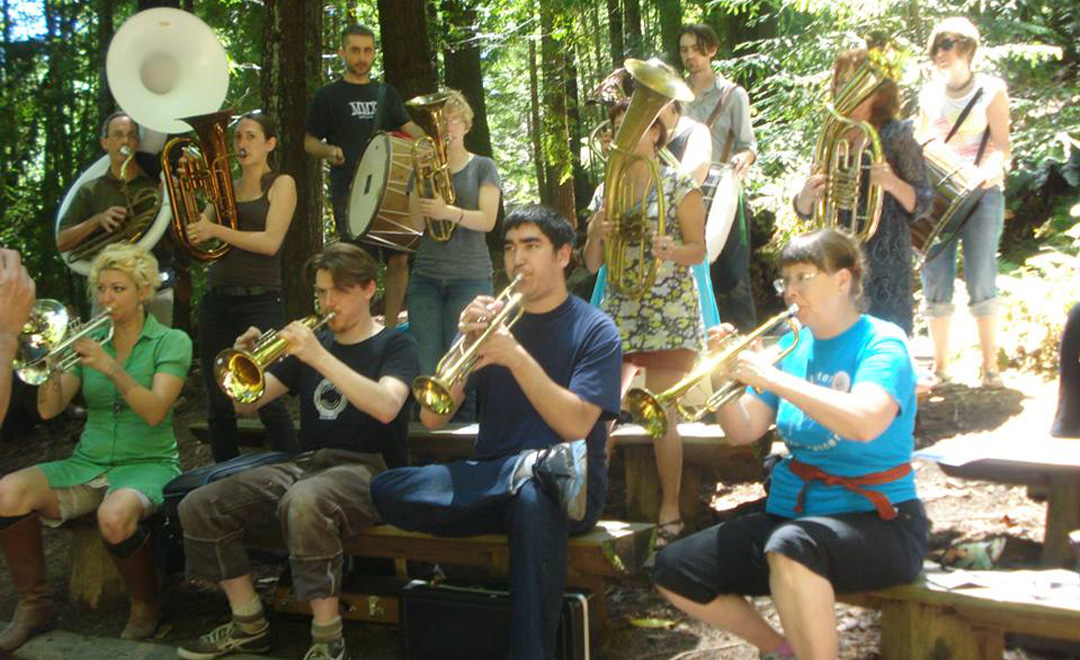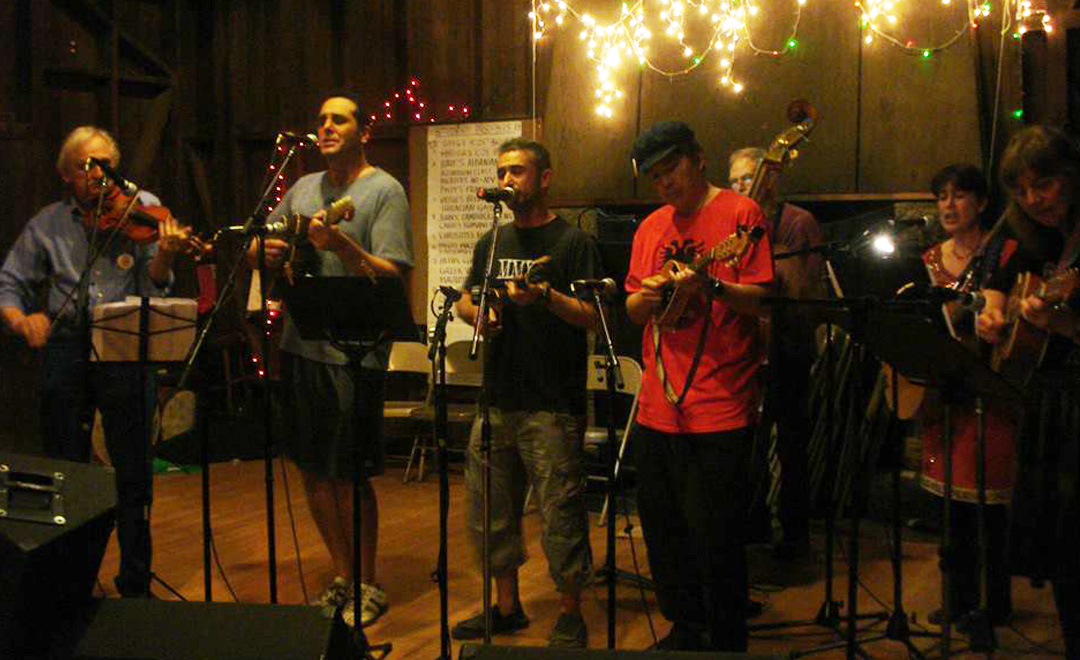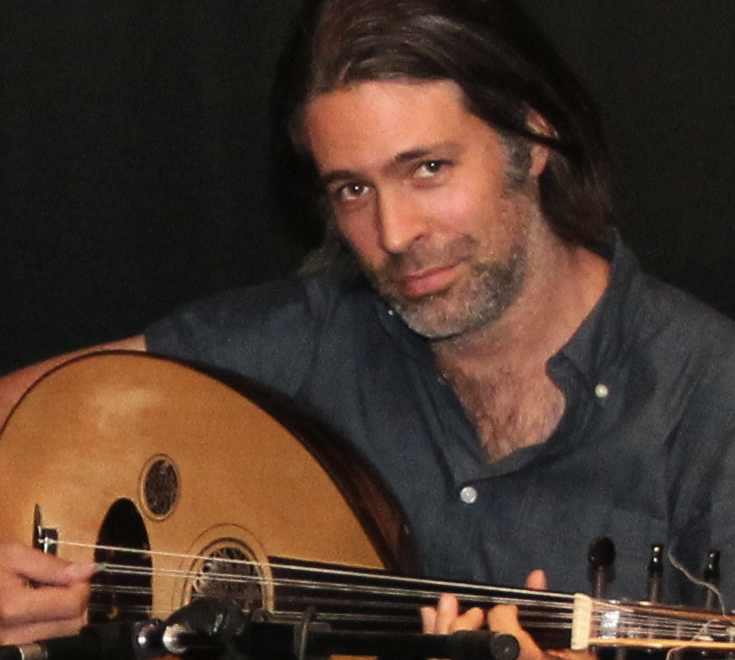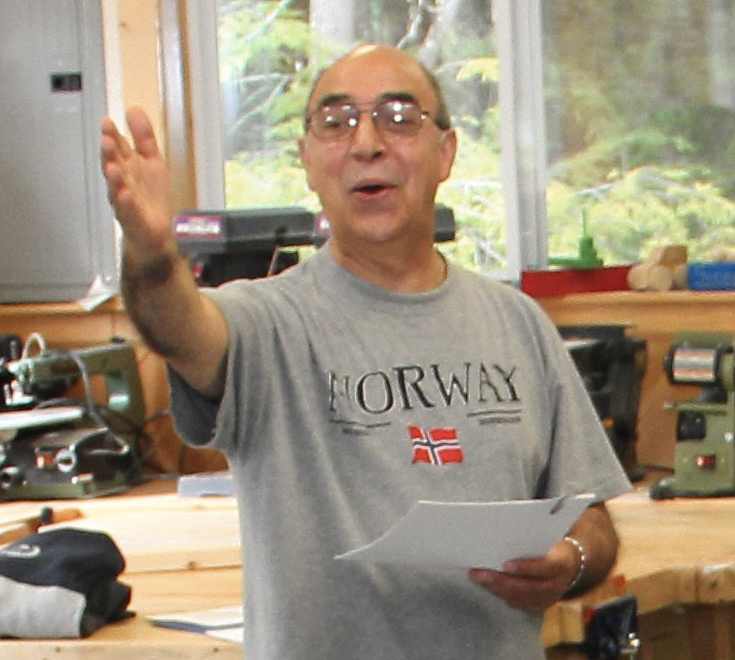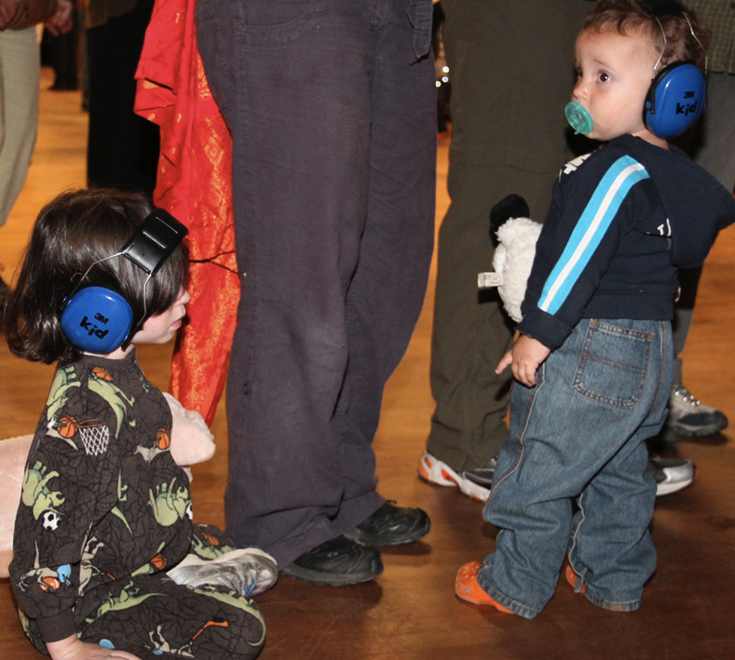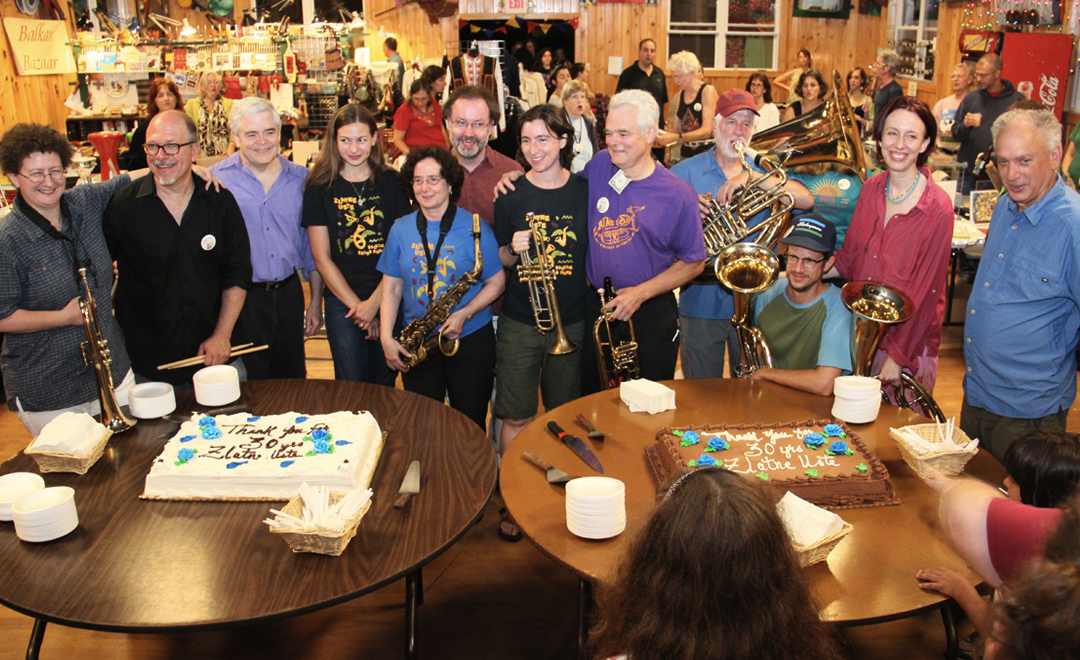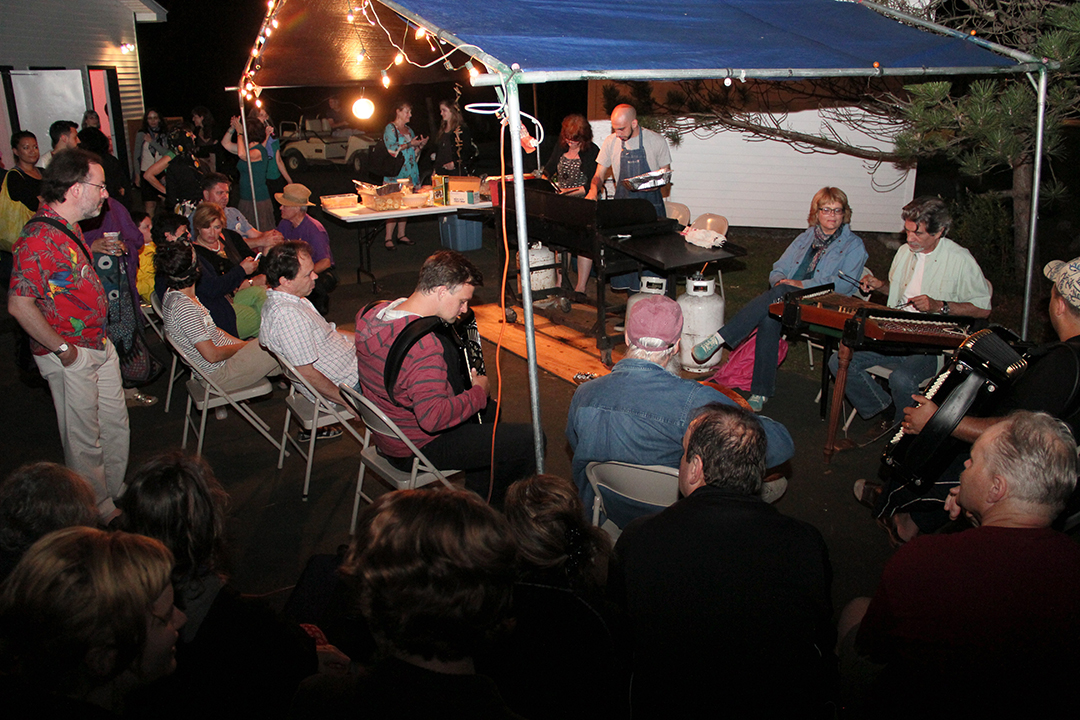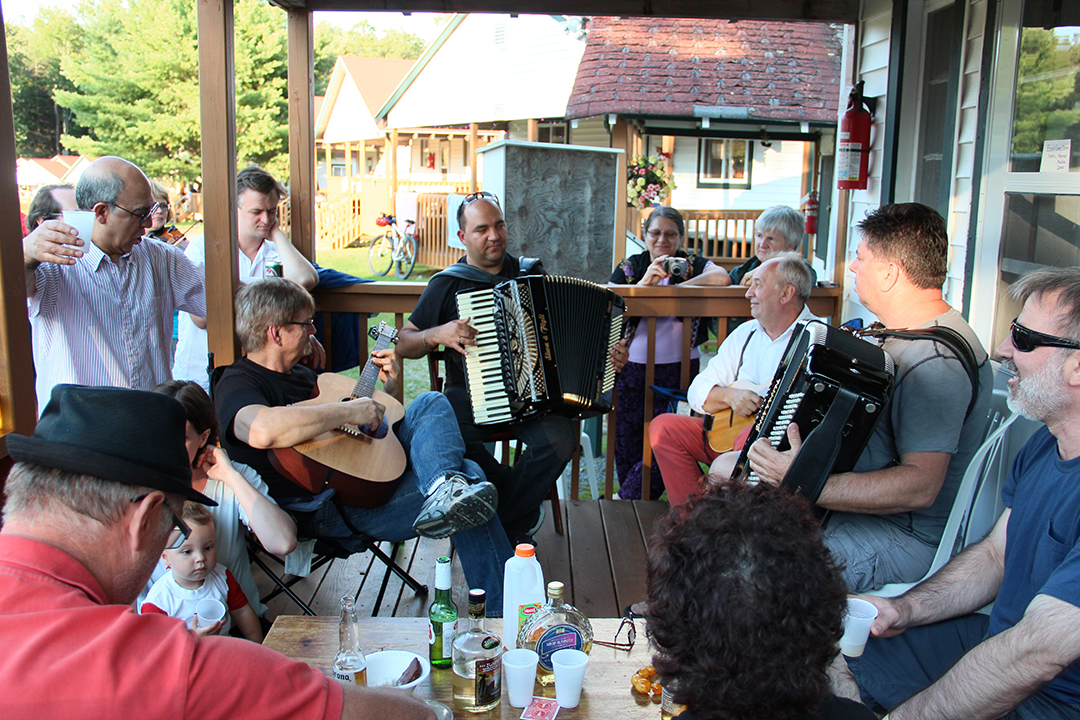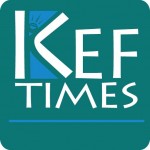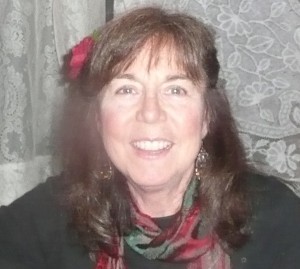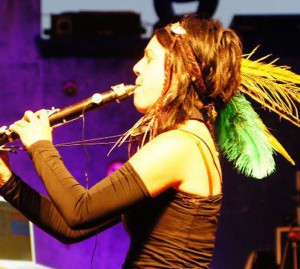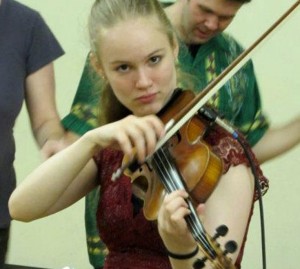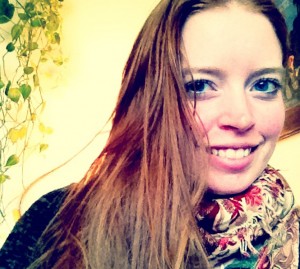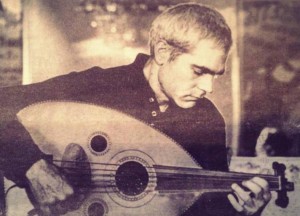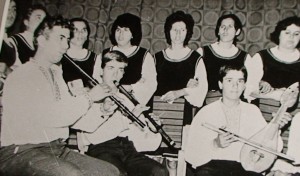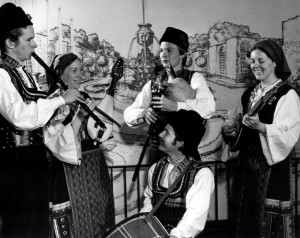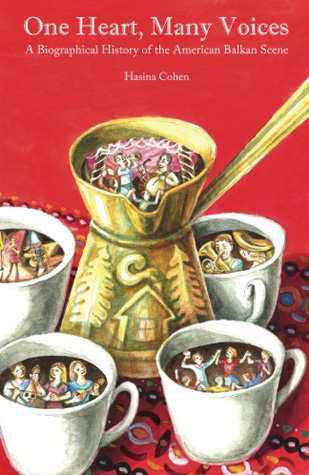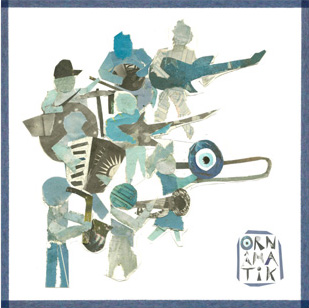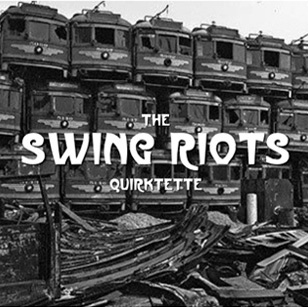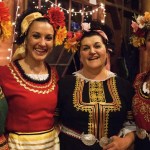
Program Committee Report
2013 Scholarship Recipients
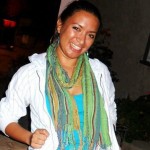
Recipients of the 2013 Dick Crum / Kef Scholarships, Balkan Night Northwest Scholarship, and Steffi Agin Scholarship chime in about what made their 2013 Workshop experiences extraordinary. Mendocino: Janet Finney-Krull, Morgan Nilsen and Lizzy Pedersen; Iroquois Springs: Dylan Crossen. Danielle Smith (Mendocino) was the recipient of the Balkan Night Northwest Scholarship; Michelle Tsigaridas Weller received the Steffi Agin Scholarship.
To learn about applying for a scholarship for a future Workshop, visit the Scholarships page on the EEFC website.
Location: Arcata, Calif.
Occupation: I have been retired from Humboldt State University for one year and help my husband deliver mail on his contracted mail route in our surrounding rural countryside.
Connection to Balkan music/dance: I play music throughout the year in the International Folk Dance band, Chubritza. You might have seen us play on Sunday night in the kafana at Mendocino Balkan camp. [Ed. note: Janet plays brač, accordion, doumbek, tupan, recorders, Irish flute, silver flute, frula and pennywhistles.]
Number of times at Balkan camp: I have been coming to Balkan Camp for many years beginning in 1994, when I started playing Balkan music with Chubritza.
Experience at camp: On the last day of kaval class my teacher, Valeri Georgiev, and I discovered that my Irish flute played very nicely with the kaval. The two instruments have similar warm sounds and some similar fingering patterns. As a beginner kaval player I was naturally struggling to play the kaval and found it to be the most difficult instrument that I had ever attempted to play. As a flute player of 50-plus years this was a humbling experience. I play the Irish flute in Chubritza as well as another Celtic folk band, Good Company, and so was naturally eager for my teacher to hear that I could indeed play the flute. We played duets together and both of us agreed that the two flutes sounded really nice together. Valeri was so patient with everyone in his class. Everyone received one-on-one instruction from him. I hope to take his class in again in the future, and I recommend this class to everyone. Cheers, Janet
Location: San Francisco, Calif.
Occupation: Performing musician and clarinet teacher
Connection to Balkan music/dance: I play with Inspector Gadje Balkan Brass Band and MWE Band (Turkish/Balkan).
Number of times at Balkan camp: This was my first year.
Experience at camp: On the MUSIC: Never having been to the Balkans I was enveloped by the village lifestyle and the family/community vibe all focused around the music. The diversity of the musical regions was incredible. Hearing a master clarinet player from Macedonia next to Christos [Govetas] playing Greek music.
The amount of personal time that the instructors gave outside of class was very generous. Raif [Hyseni] helped me with my improvisation for Albanian ensemble; Michael Ginsburg helped me with the complex rhythm in a brass band solo, and Christos sent me off with an inspiring talk about Greek clarinet after the final student concert.
On the COMMUNITY: I was warmly welcomed by the community at large, where I only knew a few people. Having biked 200 miles from SF to the camp, I was not prepared for the massive rainstorms! My small bivy tent was drenched through immediately. One fellow tenter gave me a dry Therm-a-Rest [an inflated camping mattress] to sleep on, the kitchen gave me bags and towels, one woman gave me a warm comforter, and another student a hair dryer to dry my sleeping bag. I eventually moved into Danielle's cabin, where they made space for me. Truly a beautiful, caring community! On the last day I spent hours walking from cabin to cabin and returned belongings to folk all over the camp, and was grateful.
Location: Half the time Woodinville, Wash.; the other half Boulder, Colo.
Occupation: I’m a music student at University of Colorado - Boulder currently, though I do professional music gigs when I can get them.
Connection to Balkan music/dance: When the stars align, I have been lucky enough to get to play with Kafana Republik and sometimes with Radost. I also dance with the Seattle Balkan Dancers for fun and a performing group in Boulder called Hora Romaneasca.
Number of times at Balkan camp: This was my first time!
Experience at camp: I knew that Mendocino Balkan camp was going to be a great experience, and I hoped I would come back with at least a few new songs under my belt. What I really learned was so much more valuable. Playing and singing together with the faculty, including Baže (Blagoja Smilevski) and Sali (Rumen Shopov) after the kafana closed was my favorite experience of the whole week. Those renditions had soul, and it was so much fun to hear those songs from the source. So much meaning, so much expertise. Definitely impressive! I was surprised that they could sing that passionately after a long day of playing! I would come back to Mendocino just to experience this again.
Location: Portland, Ore.
Occupation: I work at a dance studio called Datura (doing management and production, as well as teaching and performance) and I'm a professional belly dancer.
Connection to Balkan music/dance: I attend as many Balkan Night gatherings in Portland as possible. I host and perform with many touring Balkan bands (mostly from the Bay Area). I host a monthly dance event and our live band plays a mix of belly dance and Balkan music. I come down to The Bay Area several times a year to visit, and sometimes play with, musicians in the Balkan community here.
Number of times at Balkan camp: Yes, this was my first time at camp.
Experience at camp: The teaching staff was incredible! I loved how they worked together and with the students to weave such a beautiful tapestry of music and dance, friendship and knowledge. I loved the family-friendly atmosphere, and the gorgeous natural settings in which to absorb all the unique and genuine teachings. I learned so much and am eternally grateful.
Aside from that, my ONE moment that surprised/touched me, I suppose, was just seeing the children so welcomed, cared for by everyone, and included in many of the activities, even the evening parties. It really gave me a lot of joy seeing their learning in action, seeing them participate and absorb all of this rich culture in this loving, active, not so “mainstream” community. It's important for the perpetuation of not just this style of music and dance, but also of the love and appreciation for large community gatherings filled with live music played by actual hands and mouths, and group circle dancing with sometimes challenging steps that everyone learns and loves—men and women, old and young, holding hands. I appreciate that this family-oriented atmosphere was directly working on keeping traditions alive outside of our technology-heavy world, making sure we don't get lost from such an important, quintessential human way of celebration. I don't see it much these days . . . true all-ages celebrations where everyone is genuinely thrilled to be there. It was very inspiring.
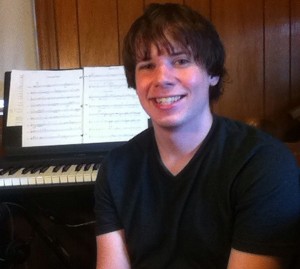
Location: Pittsburgh, Pa.
Occupation: I am a full-time undergraduate student at the University in Pittsburgh majoring in music and anthropology. After earning my bachelor's degree, I hope to enroll in graduate school in order to study Romani music and culture.
Connection to Balkan music/dance: I play the trombone and mandolin in the University of Pittsburgh Carpathian Ensemble, which is not limited to the Carpathian Mountains but also counts pieces from countries all over Eastern Europe (including the Balkans!) in its repertoire. Beyond this, my studies of Romani culture intersect with Balkan music very often.
Number of times at Balkan camp: This was my first time attending the camp, but it will certainly not be my last!
Memorable moment at camp: There were so many unforgettable moments, from performing with Čoček Nation, the Trans-Carpathian Ensemble, and Michael Ginsburg's brass band as part of Carol Silverman's Romani singing class, to simply picking up the Balkan dance styles from following along at each night's event. I don't think I met a single person that was at all unwelcoming and was not obviously passionate about Balkan music and culture. Time and time again, the teaching staff revealed themselves to be some of the greatest teachers I've ever had.
One specific experience that comes to mind took place at the kafana on the final night of camp. I was outside by the grill enjoying the music, when my tambura teacher, Bill Cope, noticed me and handed me a baglama. Although I had never heard of this instrument, Bill insisted that I play along with the group and briefly went over the basics with me. For the next hour or two I followed along while Bill would give me a sporadic tip, and gradually I became comfortable with an instrument I had never even touched prior to that night. It was a great time and I feel as though this experience captures the incredibly friendly and approachable attitude of the camp's teaching staff.
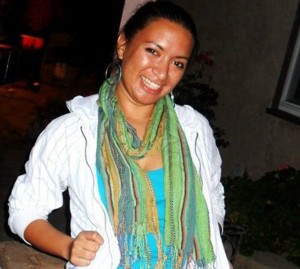
Location: Astoria (Queens), N.Y.
Occupation: Administrative Director of Clinical Program at New York Law School; clinics provide opportunities for upper-level law students to learn about law by practicing it! Our clients typically are indigent or otherwise cannot afford legal services. The resulting educational experience for our students is priceless. I work closely with our faculty and staff to create a dynamic learning environment for our students while providing quality service to our clients.
Connection to Balkan music/dance: I recently began teaching Greek dance to small groups and in private lessons. I’m still developing my website, but you can visit www.wellermovement.com to dance with me. I am a member of the Greek American Folklore Society performing group and also take classes with Traditional Movement and drop in on occasion at Folk Dance Fridays (Laura [Pannaman] and Emily [Cohen]). Last year was my first Golden Festival, which led me to camp this year, and just as you all said I would be, now I’m hooked!
Number of times at Balkan camp: First time at camp.
Experience at camp: Balkan Camp was the most wonderful string of moments I could ever imagine happening all in one week. I interacted with many wonderful people, so there are many wonderful stories that I could share, from bonding with Cabin 18 (the best cabin ever!), to killing my feet Pontic dancing in flip-flops (big mistake), to an epic Girls with Drums blender band (IzreyalaAaAa), to going cross-eyed figuring out which santouri string I was supposed to hit (there's like a million of them), to finding someone at any time of day to practice violin with on a random front porch (or tree stump). I have rewritten this paragraph so many times; how can I truly express the joy this week brought me?
Maybe it was the moment I realized I needed some time to myself. I decided to take a kayak and paddle out to the middle of the lake. I began to hum some of the songs we learned earlier in the week and then found myself belting them out. In these beautiful open surroundings, breathing in the fresh air, I took some time to reflect and meditate. I remembered how afraid I was at first to come to camp, not knowing anyone, and not knowing what this experience would bring. I realized how welcomed I felt by every camp "veteran" I met, how patient the teachers were with every wrong note I hit, how excited I could make someone else feel, just by helping them catch up and join in a dance. I laughed aloud at myself and decided to go back to all those wonderful people I was so grateful for. Thanks, EEFC, for reminding me that I feel like my truest self while I am back on the dance floor.
In Memoriam
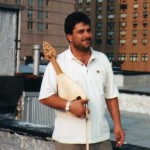
In this issue we honor three EEFC Workshop staff members who have died since our last issue: Haig Manoukian, a brilliant oud player; Marcus (Holt) Branicheff Moskoff, teacher of Bulgarian dances, gajda player, and gudulka teacher; and Georgi “Bai Georgi” Petrov, master gudulka player.
Haig Manoukian, a brilliant oud player, master of improvisation, and frequent instructor at the EEFC Balkan Music & Dance Workshops, died on April 2, 2014, at the age of 72.
Haig grew up in Virginia. As a child he heard oud music on 78 rpm recordings of Turkish sanat (“art”) music at the home of his grandparents, who were Armenian immigrants from Anatolia. He went on to listen to many records of traditional music from Istanbul and Anatolia and, in his late teens, moved to New York, where he soon found himself living in the middle of what was then a vibrant Middle Eastern music and dance scene on 8th Avenue between 27th and 30th Streets. He undertook formal music studies and started performing professionally in the 1970s. Over the years his music incorporated elements of jazz and music from Africa, India and Andalusia.
“Considered one of the world’s finest oudists, he has worked with the top musicians of Turkey, Armenia, Egypt and Iran,” states his Circuit Productions bio. “He has performed at Avery Fisher Hall, the Metropolitan Opera House, Town Hall and Carnegie Hall, as well as at major cabarets in Istanbul, Europe and the U.S.A.”
Haig performed with numerous ensembles, including Alba, Orchestra Keyif, and Sounds of Taraab. He was the longtime musical partner of clarinetist Souren Baronian; the two played in a trio, Transition, and a larger group, Taksim, both of which combined elements of jazz with Middle Eastern music. Taksim toured in the U.S. and in Europe for more than three decades.
In addition to performing, Haig repaired and reconditioned ouds at his New York studio. He taught oud and Eastern music theory at various Middle Eastern camps. At EEFC workshops, including Mendocino, East Coast and balkanalia! (formerly an EEFC-produced event), he taught oud, makam theory and taxim.
Thanks to Circuit Productions, Inc., Alwan for the Arts, and The Magic Carpet Ride: My Life So Far, by Souren Baronian and J.P. Harpignies, for some of the facts in this article.
Click here for information on Near East Far West, a reissue of the 1998 recording featuring Haig and Souren.
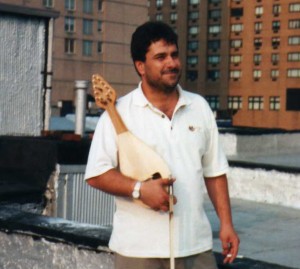 Georgi “Bai Georgi” Petrov, master gudulka player and instructor at EEFC Balkan Music & Dance Workshops, died on February 17, 2014, in Vidin, Bulgaria, after a two-year struggle with brain cancer.
Georgi “Bai Georgi” Petrov, master gudulka player and instructor at EEFC Balkan Music & Dance Workshops, died on February 17, 2014, in Vidin, Bulgaria, after a two-year struggle with brain cancer.
Georgi was born in 1962 in the village of Sinagovtsi, near Vidin in Northwestern Bulgaria, near the Danube River. His father, Jordan “Siki” Todorov, is a renowned kaval and duduk player from Sinagovtsi; his mother, Vasilka, met her future husband when he was serving a residency leading a folk ensemble in the village of Osenovo, near Blagoevgrad, in the Pirin Macedonia region of Bulgaria. It seems natural that Georgi would immerse himself in the folk music world, and indeed he had a precocious beginning, winning a gold medal at the age of 7 for playing gudulka at the Koprivštitsa national summer folk festival. His high school years were spent at the Pleven music school, and he went on to college at the Plovdiv conservatory. It was here he began composing and later recording with the Bulgarian National Radio folk orchestra. In 1990 he became concertmaster of the Radio orchestra, which was attached to the Philip Koutev National Ensemble for Folk Song and Dance. In the years following, Georgi played with Ensemble Trakija and the Bisserov Sisters, with whom he toured Europe, Japan and Canada; as well as with the women’s chorus Angelite.
A highlight of Georgi’s life came when he was tapped to join the music and dance extravaganza Riverdance in 1996 for a five-year stint. (The author remembers fondly her first meeting with Georgi in 2002, when she observed that his excellent English was tinged charmingly with an Irish brogue.) Riverdance heightened Georgi’s fame and led him to further collaborations and adventures, including several summers at Ross Daly’s Labyrinth Musical Workshop on Crete, where he taught seminars in Bulgarian folk music and improvisation.
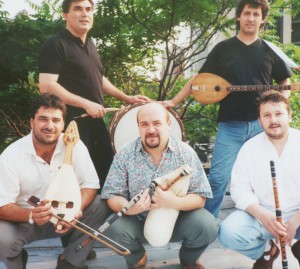
Grupa Maistori. L-R: Georgi Petrov, Ivaylo Koutchev, Vassil Bebelekov, Angel Dimitrov, Nedyalko Nedyalkov
Under the patronage of gajda player Vassil Bebelekov, who was his longtime friend and kum (best man at his wedding and godfather to his children), Georgi came to the States in 2002 to attend the balkanalia! workshop in Portland, Ore. He returned in 2003 to tour with Grupa Maistori, which included Georgi, Vassil, Nedyalko Nedyalkov, Nikolay Georgiev, Angel Dimitrov and Ivaylo Koutchev. Along with producing a self-titled CD, the band attended and taught at both Balkan Music & Dance Workshops that summer. Georgi returned to the Workshops in 2005, where he executed masterful performances in the late-night kafanas that people still recall.
In May of 2012, the village of Sinagovtsi celebrated Georgi’s 50th birthday in grand style. It is unknown how many people knew that he’d found out shortly before that he had cancer. When, sometime later, news of his illness reached across the Atlantic, Georgi’s American friends and admirers rushed to his aid, putting on benefit concerts and collecting money for his medical care and surgery. Similar efforts were carried out in Bulgaria, both by the municipality of Vidin and by friends on Facebook. Despite an optimistic prognosis after a surgery to remove his tumor in June of 2013, Georgi’s health declined drastically at the turn of 2014.
We who were lucky enough to know him remember Bai Georgi for his robust character and for the equally robust, life-affirming music that spun effortlessly from his fingers and bow. As the Bulgarians say, neka e svetla pametta mu (may his memory be bright).
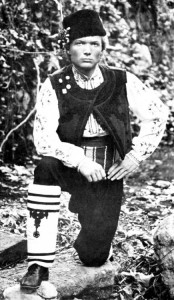 Marcus (Holt) Branicheff Moskoff, teacher of Bulgarian dances, gajda player, and gudulka teacher at EEFC Music & Dance Workshops, died on September 10, 2012, in a San Jose, Calif., hospital.
Marcus (Holt) Branicheff Moskoff, teacher of Bulgarian dances, gajda player, and gudulka teacher at EEFC Music & Dance Workshops, died on September 10, 2012, in a San Jose, Calif., hospital.
Marcus was born on June 9, 1955, in the small farm town of Avenal (near Fresno), Calif. He was first exposed to Slavic music in the Russian Orthodox Church of Fresno. At the age of 12, after his family relocated to the San Francisco Bay Area, Marcus began his interest in folklore through the Bulgarian communities on the West Coast, learning the basic national dances and developing the ability to play village instruments. Four years later, he traveled to Sofia, Bulgaria, as a guest of the Bulgarian government to study folk instrumental music and dance with the Pioneer Dance Ensemble.
After a brief return to the United States, he went back to Bulgaria in 1974, this time basing his dance studies around the National Folk Choreography School in Plovdiv, while enhancing his musicianship by playing for village weddings with kaval master Stoyan Dimov. He began performing with the State Youth Ensemble in Sofia, Bulgaria, and the Yambol Folklore Ensemble in Bulgarian Thrace. He was a gudulka graduate of the state conservatory in Plovdiv and was equally accomplished at playing gajda. Marcus changed his surname from Holt to Moskoff but retained his United States citizenship.
In 1978, Marcus traveled through Bulgaria again as a guest of the Bulgarian government, this time carrying out concentrated research in folklore with emphasis on its contemporary aspects. Returning to the U.S., Marcus taught Bulgarian dancing at workshops and festivals/institutes across the country and choreographed suites of dance and music for several folk ensembles. Dances Marcus taught include Graovsko Horo, Plovdivska Rŭčenica, Pravo Severnjaško Horo, Rodopsko Horo, Sitno Pajduško Horo, Trakijska Rŭčenica and Tropanka.
He played for years with Ensemble Trakiya in Santa Barbara, Calif., and directed the Nestinari Bulgarian Folk Orchestra. In the mid-1980s he taught for several years at both the Mendocino and East Coast camps, including at the very first (1983) East Coast camp at Ashokan. He was married to Anastasia (Asya) with whom he had a daughter, Elitsa.
Marcus published a book of Bitov instrumentation, Orchestral Melodies for Gajda, Gadulka, Kaval, and Tambura, in 1977. [Ed. note: Marcus gave EEFC permission to reprint and sell this book; you can order it at this link.]
A longer version of this article appears on Folk Dance Federation of California, South, Inc.'s website.
Photos courtesy Dick Oakes.
New & Notable
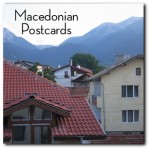
New recordings and books by folks in the EEFC community. Names in bold type indicate EEFC Workshop campers, staff, teachers, and other EEFC supporters.
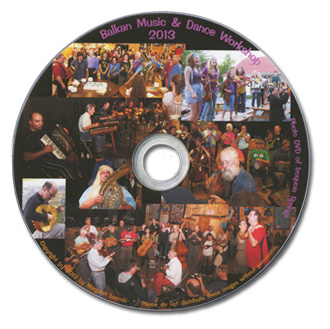 This is Margaret Loomis’ 13th year of putting together a large collection of digital photos from East Coast Balkan camp as a fundraiser for EEFC.
This is Margaret Loomis’ 13th year of putting together a large collection of digital photos from East Coast Balkan camp as a fundraiser for EEFC.
The 2013 Iroquois Springs camp was another amazing week, full of fantastic music, dancing, classes, parties, food, kafanas and friends. These photos will bring back memories if you were at camp, or give you a very good idea of the week if you weren't there. The photos make a great slideshow—enjoy the DVD yourself, or use it to convince your friends to come to camp! The collection is a lot of fun, and it also makes a nice gift. “I can pretty much guarantee you that there are a lot more camp photos in this collection than you took on your phone,” Margaret says.
The 2013 DVD contains 1,072 photos, including:
- evening parties and kafanas
- music and dance classes in action
- group sings
- Zlatne Uste’s 30-year celebration on Monday night
- auction on Tuesday night
- classes performing at Friday’s student concert
- Friday afternoon soccer game
- candid and semi-candid shots throughout the week
- lots of kids at camp
- scenic views of Iroquois Springs
- many spontaneous moments
The DVD is available for $30 plus $2 shipping/handling in the U.S. Please make checks payable to Margaret Loomis and send to Margaret Loomis, 10206 Day Ave., Silver Spring, MD 20910. Phone 301/565-0539; or email for more information. All proceeds go to EEFC. (Photo collections from most past years are also still available.)
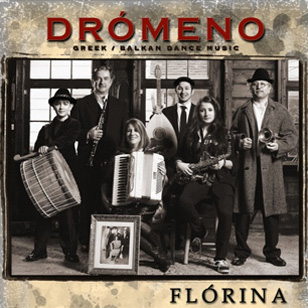
Drómeno, a band based in Seattle and led by Christos Govetas and Ruth Hunter, presents regional music from all over Greece and the Balkans. This recording is a collection of their favorite Macedonian (brass) dance tunes from both sides of the border. Christos Govetas - clarinet, voice; Ruth Hunter - accordion, voice; Eleni Govetas - saxophone; Nick Maroussis - guitar; Peter Lippman - trumpet; Bobby Govetas - drums; and special guest - Benji Rifati: trumpet.
$15 CD or $9.99 digital at cdbaby.com
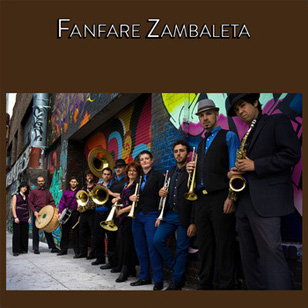
Fanfare Zambaleta was incubated in the Zambaleta Music and Dance School in San Francisco and has since transformed into a full-fledged juggernaut of a band, featuring some of the Bay Area's most exciting young players and seasoned veterans. Emulating the great Balkan brass bands of the past and present, they play Romani, Serbian, Macedonian and Greek brass band music with passion and dedication. FZ's potent musical concoction of wild improvisation, meticulous ensemble coordination, earth-shaking low brass, thunderous drumming and jubilant vocals will move your feet and lift your soul.
Members are: Gregory Jenkins - alto sax, vocals; Noah Levitt - trumpet; Harlow Carpenter - trumpet, truba; Theo Padouvas - trumpet; Corinne Sykes - lead vocals, percussion; Rachel MacFarlane - tenor horn; Larry Leight - euphonium; Peter Bonos - euphonium; Evan Stuart - sousaphone; Ivan Velev - percussion, vocals; and Jake Shandling - percussion.
You can download the 4-track digital album ($4 USD) or order the CD ($5 USD) at bandcamp.com.
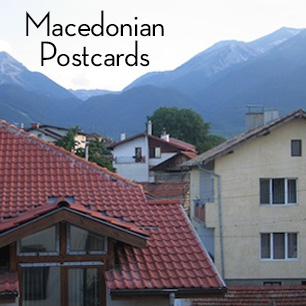
David Bilides and Dragi Spasovski have recently released the 35th podcast in their series, “Macedonian Postcards,” which features the song “Ori Jano, Sokol Jano,” a love song from the Tetovo area of Macedonia. Dragi discusses the background of the song and talks about the differences between singing with kavals and gajdas, and ornamenting melodies.
Since the first podcast in 2007, David and Dragi have discussed and provided samples drawn from the 54 Macedonian folk songs in Dragi's three-CD and songbook project issued by Izvor Music. On each podcast, Dragi tells stories about the recordings and musicians and gives glimpses of his life and Macedonian culture in general. You can download each episode individually, listen to an audio stream of each episode, or subscribe to the entire series. Go to: http://podcasts.izvormusic.com
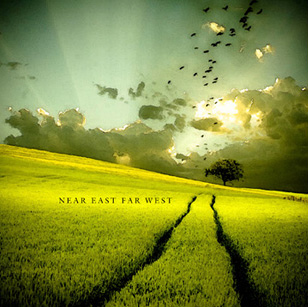
The AgaRhythm label is re-issuing a newly mastered Near East Far West, a recording made in 1998 that features two fine musicians—Souren Baronian and Haig Manoukian. Souren is still burning the music up, and Haig is never far from our thoughts. This recording was made after being together in Hawaii for a particularly rainy week. Instead of hitting the beaches we hung out inside making music all day, sharing our different musical interests. This musical mix captures that moment in time.
This recording features: Souren Baronian – clarinet, soprano saxophone, riq; Haig Manoukian – oud; George Chittenden – clarinet, alto saxophone; Lise Liepman – santouri, accordion, vocal; Polly Tapia Ferber – doumbek, bendir, Dan Auvil – tupan, defi
$12 or $9.99 digital at cdbaby.com
One Heart, Many Voices: A Biographical History of the American Balkan Scene, by Hasina Cohen. CreateSpace Independent Publishing Platform, 2014. Paperback or Kindle.
This book is a journey through the lives of six individuals who make music and dance as part of a cultural constellation known as the American Balkan scene, and by extension, a journey through the history of the scene itself. The six individuals are Mark Levy, Dena Bjornlie, Rachel MacFarlane, Eva Salina Primack, Peter Jaques and Briget Boyle. The book’s cover art is by Susan Reagel.
Rather than limiting her focus to names, dates, and trends, author Hasina Cohen serves as a conduit for the surrounding stories, creating an intimate, compelling and dynamic portrait rich in human experience.
Hasina Cohen completed her bachelor’s degree in ethnomusicology at the University of Oregon under Mark Levy and Anne Dhu McLucas.
OrnâmatiK is a group from Ann Arbor, Mich., that plays music from all over the Balkans, including regions of Turkey, Armenia, Greece, and Bulgaria.
Members are: Derek Worthington - trumpet; Andy Warren - trumpet; Eric Schweizer - saxophone, clarinet; Bethanni Grecynski - trombone; Matt Endahl - accordion; Darrin James- guitar; Ben Rolston - bass; Xavier Verna - doumbek; and Drew Schmieding - drum set.
You can get the 7-track album for $7 USD in the digital format of your choice at bandcamp.com.
Read more about the group here.
The initial inspiration for The Swing Riots Quirktette came from the great Rom guitarist Matelo Ferrét, who played for homesick eastern Europeans in the Caberet Russe nightclubs of Paris alongside Romanian, Russian and at least one Bulgarian Rom bandleader. Matelo also played Hot Jazz with Django Reinhardt and others during the ’30s and ’40s and naturally layered jazz chording and swing rhythm into this eastern European repertoire.
With this in mind, The Swing Riots Quirktette perform a mix of early, traditional string-based jazz, as well as swinging eastern European traditional dance melodies.
The Swing Riots Quirktette are Miamon Miller - violin; Pat Mac Swyney - mandolin, tenor resonator, harmonica and voice; Leslie Yeseta (of the famous Yeseta Brothers Tamburitza family) - voice and guitar; Nick Casillas - clarinet and soprano sax; Ben Getting - upright bass; Adam Steinberg - drums and percussion.
To order the 50+ minute CD-R, send a check for $12.50, made payable to Pat Mac Swyney, 25554 Via Jardin, Valencia, CA 91355, and the CD will be promptly mailed to you, same week.
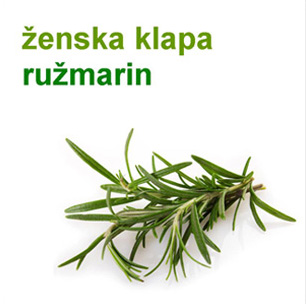
Ženska Klapa Ružmarin of Vancouver, B.C., Canada, has released its first CD. The seven-voice, Croatian women's a cappella singing group specializes in the urban four-part, close harmony folk singing style from the Dalmatian region known as klapa.
Ženska Klapa Ružmarin formed in 2009 and is directed by John Morovich. They have performed regionally for Croatian community events, as well as performances at Seattle's CroatiaFest, Van Dusen Gardens Festival of Lights, the Vancouver Christmas Market and the CKNW Orphans' Fund Radio-thon. The group is one of only a few klapas in North America.
To order a CD, send a check for $18 made out to Klapa Ružmarin c/o Croatian Cultural Centre, 3250 Commercial Drive, Vancouver B.C. Canada V5N 4E4. For more information email or visit the group on Facebook.
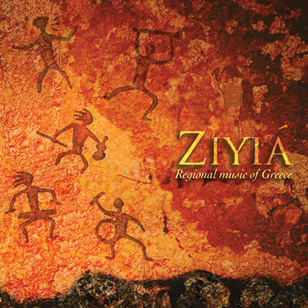 Now one of the premier Greek bands in the U.S., the East Coast and West Coast members of Ziyiá met at the Mendocino Balkan camp in 1990 and have been actively playing together ever since. They are excited to finally have another recording—it’s been a while.
Now one of the premier Greek bands in the U.S., the East Coast and West Coast members of Ziyiá met at the Mendocino Balkan camp in 1990 and have been actively playing together ever since. They are excited to finally have another recording—it’s been a while.
George Chittenden – clarinet, gaida, guitar, zourna
Christos Govetas – clarinet, laouto, vocals
Beth Bahia Cohen – violin
Lise Liepman – accordion, santouri
Rumen Sali Shopov – daouli, doumbeleki
$15 or $9.99 digital at cdbaby.com (currently in production; will be available soon)
Welcome to the New Online Kef Times!
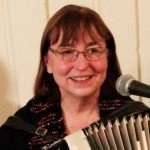

Julie Lancaster (Tadd Truscott)
This new format for the EEFC’s newsletter is the culmination of bright ideas and diligent work from many collaborators over the last few months. We hope you will enjoy it and be inspired to contribute articles and photos for future issues.
Behind the New Format
From 1994 to 2007, the EEFC’s newsletter was printed in black and white and mailed to readers. In 2007, to save money, the publication became an online PDF. Although Kef Times was now in glorious color, readership went down. And—also for budget reasons—the twice-a-year schedule was changed to one issue per year, if at all (in 2012, no issue was funded).
We’ve been wanting to find a way to make the newsletter more accessible to readers while still presenting great photos and meaningful content with high editorial standards. Late in 2013, EEFC Executive Director Jay House and Board Member Elena Erber approached me with the idea of turning Kef Times into an online publication with a blog-like format. As we discussed possible approaches and brought other folks into the discussion, it was clear we were attempting to (in the non-PC words of my accordion teacher, Boris) “shoot many rabbits with one bullet”:
- increase the frequency and deepen the EEFC’s contact with its community
- present more of the EEFC’s amazing knowledge base
- make content easy to find by topic and more easily accessible by people who aren’t yet part of our community
- make content easily sharable within and beyond our community
- help EEFC live up to the Board’s stated goal of EEFC being “the source” for Balkan music and dance topics
- stretch the existing marketing budget by standardizing the newsletter’s design and involving more volunteer contributors so that we could publish more frequently
For many years, Kef Times’ production team has been paid (at a sharply discounted rate), and other contributors—dozens of them, over the years—have volunteered their efforts. Getting this new format off the ground has taken countless hours of additional unpaid work on the part of the current production team (Dan Auvil, Rachel MacFarlane and me) as well as Elena, Jay, Demetri Tashie and Matthew Fass. (Thanks, everyone.)
New Sections
I’m happy to announce we have some new volunteer section editors—Bill Cope for Balkan Songs, Rachel MacFarlane for Balkan Bites (food), and Wendi Kiss for Eastern European Threads (costumes and textiles). Each of these sections will start with our next issue, which is scheduled for September (submission deadline August 1); not every section will appear in every issue. If you have something to contribute for one of these sections, please contact the section editor directly; note that we can’t guarantee to run everything we receive.
I’m also looking to engage a volunteer section editor for another new area, In the Hood, which will cover EEFC-inspired music scenes or events in cities across the US and Canada (or, for that matter, anywhere)—specifically, how folks have organized Balkan music events or series in their neck of the woods. If you’d like to be that editor, contact me.
Reviving Old Content
Over the past 20 years the EEFC’s newsletter has accumulated an impressive collection of articles that reflect our community and the music and dance we love. You can still access complete past issues of Kef Times (see the archive sidebar on the lefthand side of this page), but we’re working on making as much of the old newsletter content as possible available and searchable on the new KT website. In most cases, this means extracting text and graphics from PDFs and uploading them to a WordPress page. If you are good at that kind of thing and interested in helping, please contact Rachel.
We’re all excited about the new approach and hope you like it. If you do, please let us know. Better yet, please contact one of our section editors or me with a story idea or article you’d like to write for a future issue!
Enjoy,
Julie Lancaster
KT Editor
Mendocino 2013: Danielle Smith (Balkan Night Northwest Scholarship)

Location: Portland, Ore.
Occupation: I work at a dance studio called Datura (doing management and production, as well as teaching and performance) and I’m a professional belly dancer.
Connection to Balkan music/dance: I attend as many Balkan Night gatherings in Portland as possible. I host and perform with many touring Balkan bands (mostly from the Bay Area). I host a monthly dance event and our live band plays a mix of belly dance and Balkan music. I come down to The Bay Area several times a year to visit, and sometimes play with, musicians in the Balkan community here.
Number of times at Balkan camp: Yes, this was my first time at camp.
Experience at camp: The teaching staff was incredible! I loved how they worked together and with the students to weave such a beautiful tapestry of music and dance, friendship and knowledge. I loved the family-friendly atmosphere, and the gorgeous natural settings in which to absorb all the unique and genuine teachings. I learned so much and am eternally grateful.
Aside from that, my ONE moment that surprised/touched me, I suppose, was just seeing the children so welcomed, cared for by everyone, and included in many of the activities, even the evening parties. It really gave me a lot of joy seeing their learning in action, seeing them participate and absorb all of this rich culture in this loving, active, not so “mainstream” community. It’s important for the perpetuation of not just this style of music and dance, but also of the love and appreciation for large community gatherings filled with live music played by actual hands and mouths, and group circle dancing with sometimes challenging steps that everyone learns and loves—men and women, old and young, holding hands. I appreciate that this family-oriented atmosphere was directly working on keeping traditions alive outside of our technology-heavy world, making sure we don’t get lost from such an important, quintessential human way of celebration. I don’t see it much these days . . . true all-ages celebrations where everyone is genuinely thrilled to be there. It was very inspiring.
Iroquois Springs 2013: Michelle Tsigaridas Weller (Stefni Agin Scholarship)


Location: Astoria (Queens), N.Y.
Occupation: Administrative Director of Clinical Program at New York Law School; clinics provide opportunities for upper-level law students to learn about law by practicing it! Our clients typically are indigent or otherwise cannot afford legal services. The resulting educational experience for our students is priceless. I work closely with our faculty and staff to create a dynamic learning environment for our students while providing quality service to our clients.
Connection to Balkan music/dance: I recently began teaching Greek dance to small groups and in private lessons. I’m still developing my website, but you can visit www.wellermovement.com to dance with me. I am a member of the Greek American Folklore Society performing group and also take classes with Traditional Movement and drop in on occasion at Folk Dance Fridays (Laura [Pannaman] and Emily [Cohen]). Last year was my first Golden Festival, which led me to camp this year, and just as you all said I would be, now I’m hooked!
Number of times at Balkan camp: First time at camp.
Experience at camp: Balkan Camp was the most wonderful string of moments I could ever imagine happening all in one week. I interacted with many wonderful people, so there are many wonderful stories that I could share, from bonding with Cabin 18 (the best cabin ever!), to killing my feet Pontic dancing in flip-flops (big mistake), to an epic Girls with Drums blender band (IzreyalaAaAa), to going cross-eyed figuring out which santouri string I was supposed to hit (there’s like a million of them), to finding someone at any time of day to practice violin with on a random front porch (or tree stump). I have rewritten this paragraph so many times; how can I truly express the joy this week brought me?
Maybe it was the moment I realized I needed some time to myself. I decided to take a kayak and paddle out to the middle of the lake. I began to hum some of the songs we learned earlier in the week and then found myself belting them out. In these beautiful open surroundings, breathing in the fresh air, I took some time to reflect and meditate. I remembered how afraid I was at first to come to camp, not knowing anyone, and not knowing what this experience would bring. I realized how welcomed I felt by every camp “veteran” I met, how patient the teachers were with every wrong note I hit, how excited I could make someone else feel, just by helping them catch up and join in a dance. I laughed aloud at myself and decided to go back to all those wonderful people I was so grateful for. Thanks, EEFC, for reminding me that I feel like my truest self while I am back on the dance floor.
Mendocino 2013: Lizzy Pederson
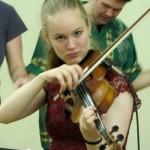
Location: Half the time Woodinville, Wash.; the other half Boulder, Colo.
Occupation: I’m a music student at University of Colorado – Boulder currently, though I do professional music gigs when I can get them.
Connection to Balkan music/dance: When the stars align, I have been lucky enough to get to play with Kafana Republik and sometimes with Radost. I also dance with the Seattle Balkan Dancers for fun and a performing group in Boulder called Hora Romaneasca.
Number of times at Balkan camp: This was my first time!
Experience at camp: I knew that Mendocino Balkan camp was going to be a great experience, and I hoped I would come back with at least a few new songs under my belt. What I really learned was so much more valuable. Playing and singing together with the faculty, including Baže (Blagoja Smilevski) and Sali (Rumen Shopov) after the kafana closed was my favorite experience of the whole week. Those renditions had soul, and it was so much fun to hear those songs from the source. So much meaning, so much expertise. Definitely impressive! I was surprised that they could sing that passionately after a long day of playing! I would come back to Mendocino just to experience this again.
Mendocino 2013: Morgan Nilsen
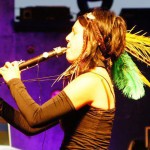
Location: San Francisco, Calif.
Occupation: Performing musician and clarinet teacher
Connection to Balkan music/dance: I play with Inspector Gadje Balkan Brass Band and MWE Band (Turkish/Balkan).
Number of times at Balkan camp: This was my first year.
Experience at camp: On the MUSIC: Never having been to the Balkans I was enveloped by the village lifestyle and the family/community vibe all focused around the music. The diversity of the musical regions was incredible. Hearing a master clarinet player from Macedonia next to Christos [Govetas] playing Greek music.
The amount of personal time that the instructors gave outside of class was very generous. Raif [Hyseni] helped me with my improvisation for Albanian ensemble; Michael Ginsburg helped me with the complex rhythm in a brass band solo, and Christos sent me off with an inspiring talk about Greek clarinet after the final student concert.
On the COMMUNITY: I was warmly welcomed by the community at large, where I only knew a few people. Having biked 200 miles from SF to the camp, I was not prepared for the massive rainstorms! My small bivy tent was drenched through immediately. One fellow tenter gave me a dry Therm-a-Rest [an inflated camping mattress] to sleep on, the kitchen gave me bags and towels, one woman gave me a warm comforter, and another student a hair dryer to dry my sleeping bag. I eventually moved into Danielle’s cabin, where they made space for me. Truly a beautiful, caring community! On the last day I spent hours walking from cabin to cabin and returned belongings to folk all over the camp, and was grateful.
